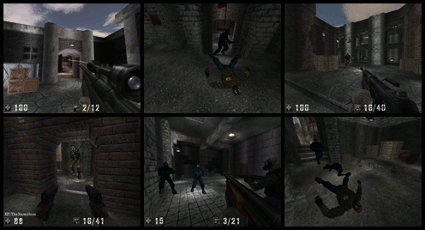I’m a bit late this month, but here we go, these are the top 7 of the most read articles from Linuxaria in the month of November, read them now if you missed the opportunity to do it.
7 – Permanent SSH Tunnels with autossh
There are many occasions where you need to create connections to machines and services that are protected by firewalls because it is appropriate to adequately protect them, but for which the creation of a VPN becomes an excessive burden.
For this reason, the ability to port forwarding via SSH is very useful for creating an encrypted tunnel from one machine to another, allowing you to enable only local access (such as a MySQL only listens locally) safely, with the only the problem that in case of problems, the SSH connection (and its tunnels) could fall.
6 – ETC – where the config files lurk
There are many reasons I prefer Linux. Near the top of the list is that I’m a tweaker. Someone who enjoys making changes and having things “My Way”, like the song by Frank Sinatra.
Linux has many configuration files, most of which “lurk” in the “/etc” folder. These files are used to configure the mounting of drives, network lists like what IP address goes with what computer name, passwords and admin access, application configuration and even what the boot menu looks like. “Under the Hood” Linux is highly customizable.
5 – Online Budget with Gnucash + MySQL + SSH
Gnucash is a great tool to keep the budget of the family, and from the version 2.4.0 supports connection to a database, SQLite, MySQL or PostgreSQL for data storage. Using a local database, however, tie to a specific computer for its use. Instead I want to be able to open a GnuCash session from any computer and connect to a single, remote, database.
Enable remote connections to the database from the whole net is very unsafe, but a SSH tunnel gives me a lightweight and reliable alternative .
4 – Littleutils, a Great collection of small utility
I’ve recently discovered another useful package for GNU/Linux, Littleutils.
The littleutils include a duplicate file finder (repeats), image optimizers (opt-jpg opt-png opt-gif recomp-jpg), file rename tools (lowercase uppercase), archive recompressors (to-bzip to-7zip to-lzma), a tempfile utility (tempname), all are small programs that do just 1 thing, in a perfect Unix style, so don’t expect anything too complex but these small gems can save you some time to do specific jobs.
3 – Protect your server with SSHGuard
 I’ve already talked about fail2ban and logcheck, 2 tools that can scan your logs and do actions, based on rules that you can give/modify, usually modify your iptables rules to stop active attacks against your server or simply send you a warning if some thing is found in the logs.
I’ve already talked about fail2ban and logcheck, 2 tools that can scan your logs and do actions, based on rules that you can give/modify, usually modify your iptables rules to stop active attacks against your server or simply send you a warning if some thing is found in the logs.
Today we’ll see a similar tool, sshguard, it is different from the other two in that it is written in C, so it’s uses less memory and CPU while running, but still achiving the same results.
2 – gEdit, an easy to use text editor with many advanced features
gEdit is a serious text editor in the tradition of many editors that the programmer or code jockey will appreciate – syntax highlighting in many source codes, script formats, markup formats, and even some Scientific formats.
I write a lot of HTML code and I find the multiple undo/redo, find, search & replace, and the built-in code-aware spelling checker essential on a daily basis.
1 – 5 great FPS game for Linux
It’s some time that i don’t do a roundup of games, and so today i want to present you some of the best FPS available for Linux.
Like i always say, the time where Linux games were not comparable with the Windows counterpart is past, and now , with the right hardware, you can play some great games also on your Linux box.
Let’s take a look at : Warsow, World of Padman, Urban Terrror, Open Arena and AssaultCube

Popular Posts:
- None Found

Hi,
Thank you for your nice article on Linux aria.
I like for your good writing.
Thanks .